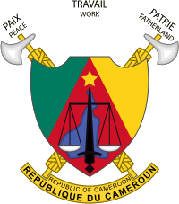On 19 April 2023 in Paris, France, the Minister of SMEs, Social Economy and Handicrafts of Cameroon Achille BASSILEKIN III presided over a Cameroon Economic Forum. He also took part in the Africa Forum of the French Board of Investors in Africa on 18 April 2023.
The Cameroon Economic Forum held on 19 April 2023 had as theme: “The contribution of SMEs in the import-substitution policy”. It gave rise to interactive exchanges and B to B meetings between investors wishing to develop projects with Cameroon. It was in the presence of a delegation of high rank officials from the public and private sector of Cameroon. The theme chosen this year falls within the second phase of the vision of an emerging Cameroon by 2035, as set out in its National Development Strategy and which revolves around the structural transformation of the economy.
As for the Africa Forum of the French Board of Investors in Africa (CIAN-Africa), it brought together in the French capital personalities from various backgrounds who share an interest in boosting business in Africa through investment. During the proceedings of the said Forum, the Minister of SMESEH stated that Cameroon is “a leading economy in the Central African region, which offers investors real opportunities in a context where progress is being made to improve the business climate”.
In his address, Achille Bassilekin III highlighted the richness of Cameroon by insisting on the great geographical, economic, human and cultural diversity of this country. Moreover, more than in the past, the conditions are favourable to facilitate the breakthrough of investors in many sectors and guarantee them an excellent return on investment. It was therefore necessary for the Minister of SMESEH to convince investors of the importance of investing in Cameroon. The arguments put forward were: the pride of place, Cameroon has through its position in the heart of the Gulf of Guinea with an opening on the various regional economic communities which constitute the vast African continental market; it is the most diversified economic fabric of Central Africa offering many business opportunities with a network of more than 330,000 SMEs and SMIs ready for subcontracting and co-contracting.
The import-substitution policy as a palliative to the Russo-Ukrainian crisis.
Concerning the Russo-Ukrainian crisis, Cameroon has accelerated the implementation of the import-substitution policy, materialised by the rise in power of companies that produce goods and services. These are supported by the mobilisation of the Government as recalled by the Minister of SMEs, Achille Bassilekin III “The Government spared no effort to give content to the import-substitution policy in order to ensure that local productive capacities are increased tenfold”. In addition, a number of measures have been defined by the Government to build economic and social resilience and to revive economic activity. These measures also make it possible to boost the involvement of SMEs in production and the take-off of the nine sub-sectors identified by the NDS30 to spur the industrial impetus in Cameroon.
Similarly, in order to encourage self-employment for a better contribution to wealth and diversification of the economy, the Government is working to promote an entrepreneurial culture in schools, universities and vocational training centres.
In addition, to support projects that match local production in volume and quality with local demand, the Prime Minister set up a Credit Supply Facilitation Fund on 22 March 2023. Achille Bassilekin III, Minister of SMEs, Social Economy and Handicrafts, explained the rationale behind this important State support according to the sector: “This 200 billion guarantee line set up by the Government will make it possible to cover the financing needs of SMEs in the agricultural, fish farming and livestock sectors.

